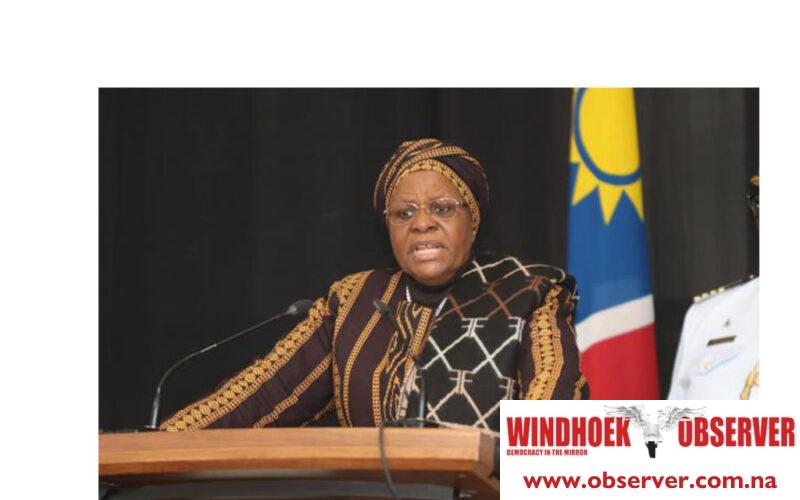Justicia Shipena
“I am really appealing. I said I have confidence in you, and I mean it. Don’t betray my trust in you for us to transform our economy.”
This was President Netumbo Nandi-Ndaitwah’s message to civil servants during her address in Windhoek on Friday.
She urged public servants to recommit to service delivery, integrity, and accountability while cautioning against corruption and poor conduct in public offices.
“We must remain vigilant against corruption in all its forms by understanding it, as it is tantamount to treason. If corruption becomes a norm, you frustrate the population, and one day they can say enough is enough. They will go into the streets,” she warned.
Nandi-Ndaitwah said betraying public trust could threaten national stability.
“The nation trusts us. As civil servants, we are trusted by the nation, and we must not betray it. When you betray trust, the potential of war is there, and Namibia is a good example.”
She described public servants as an indispensable national resource.
“You are the most vital component of the machinery that keeps the wheels of the government turning.Without your active, ethical, and capable participation, the government cannot function effectively, nor will it deliver the required services to the nation.”
She emphasised that public service is a calling, not a place for personal comfort or enrichment.
“If you do not have passion for the people, if you see citizens as a burden, and if you believe your office is a space for your personal comfort zone for enrichment or side businesses, then you are at the wrong place.”
She warned that poor performance breeds frustration and insecurity.
“This is how inefficiency creeps in. When that happens, the State will fail to meet its constitutional obligations, thus creating frustration among the citizens leading to social and economic insecurity,” said Nandi-Ndaitwah.
Netumbo called for a shift in public servant attitudes.
“I am appealing to you as public servants, do not tell people, ‘I am too busy.’ They do not understand your busyness. Find a way of how you can make them feel that they are being cared for. I therefore demand that for those of us who have an attitude, let us change.”
She also raised concern over mental health, linking it to poor service.
“If a person comes to our offices trying to get information and you did not treat the person properly, that is what could trigger the frustration that is on their mind and then mental health becomes a problem in our country.”
Citing the Otjinene Hospital delays and other inefficiencies, she said there must be “consequence management” across government.
“There will be ‘no business as usual,’ and there will be consequences for non-performance and non-effective service delivery.”
She reminded public servants of the benefits they enjoy, including regular salaries, medical aid, pension contributions, housing and vehicle allowances, and career development opportunities.
“These benefits serve as your driving force that must propel you towards the accomplishments of the assignments given to you. Self-enrichment at the expense of the public is a bridge of the contract and a betrayal of the nation’s trust.”
Nandi-Ndaitwah called for a basic-needs and service-excellence approach.
“This is not optional, it is necessary. The Government must not fail those it has sworn to serve.”
Acknowledging the financial constraints, she noted that the public wage bill exceeds N$35 billion for over 100,000 employees.
“We must prudently utilise the scarce resources at our disposal by applying the concept of achieving more with less.”
She explained that while government creates a conducive environment for jobs, employment largely lies in the hands of the private sector.
“The government by its design and structures is not the primary employer of the majority. Employment is squarely within the domain of the private sector.”
She said those who are not ready for change must rethink their role. “If you are ready to be part of this transformation, you are welcome on board. If not, you must re-evaluate your purpose in the public service.”




